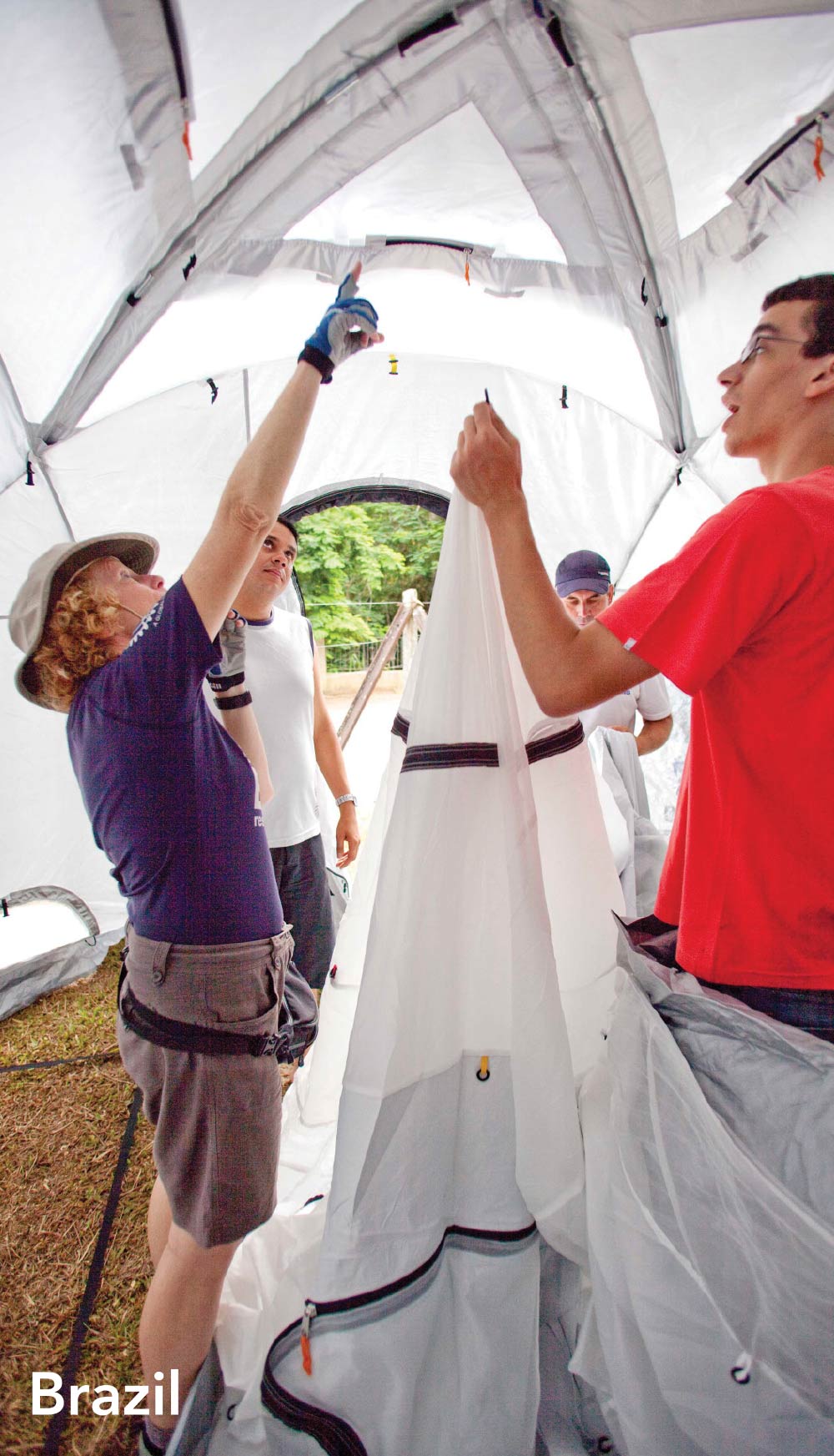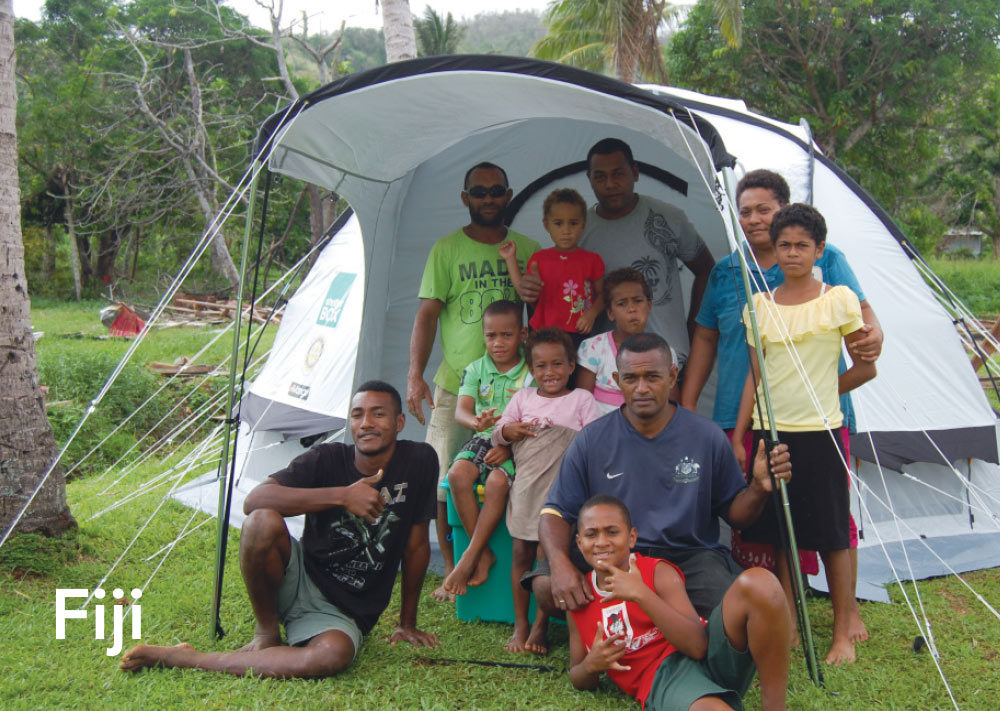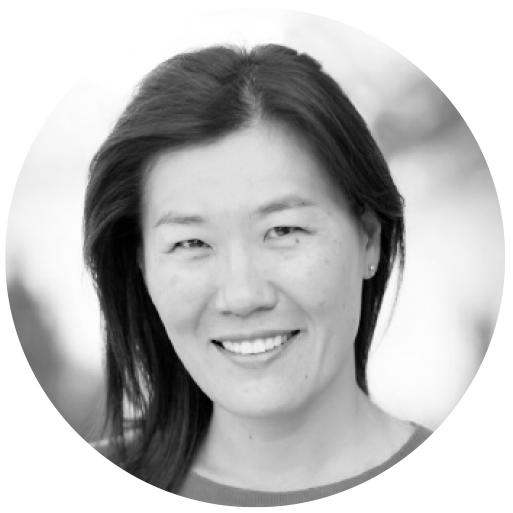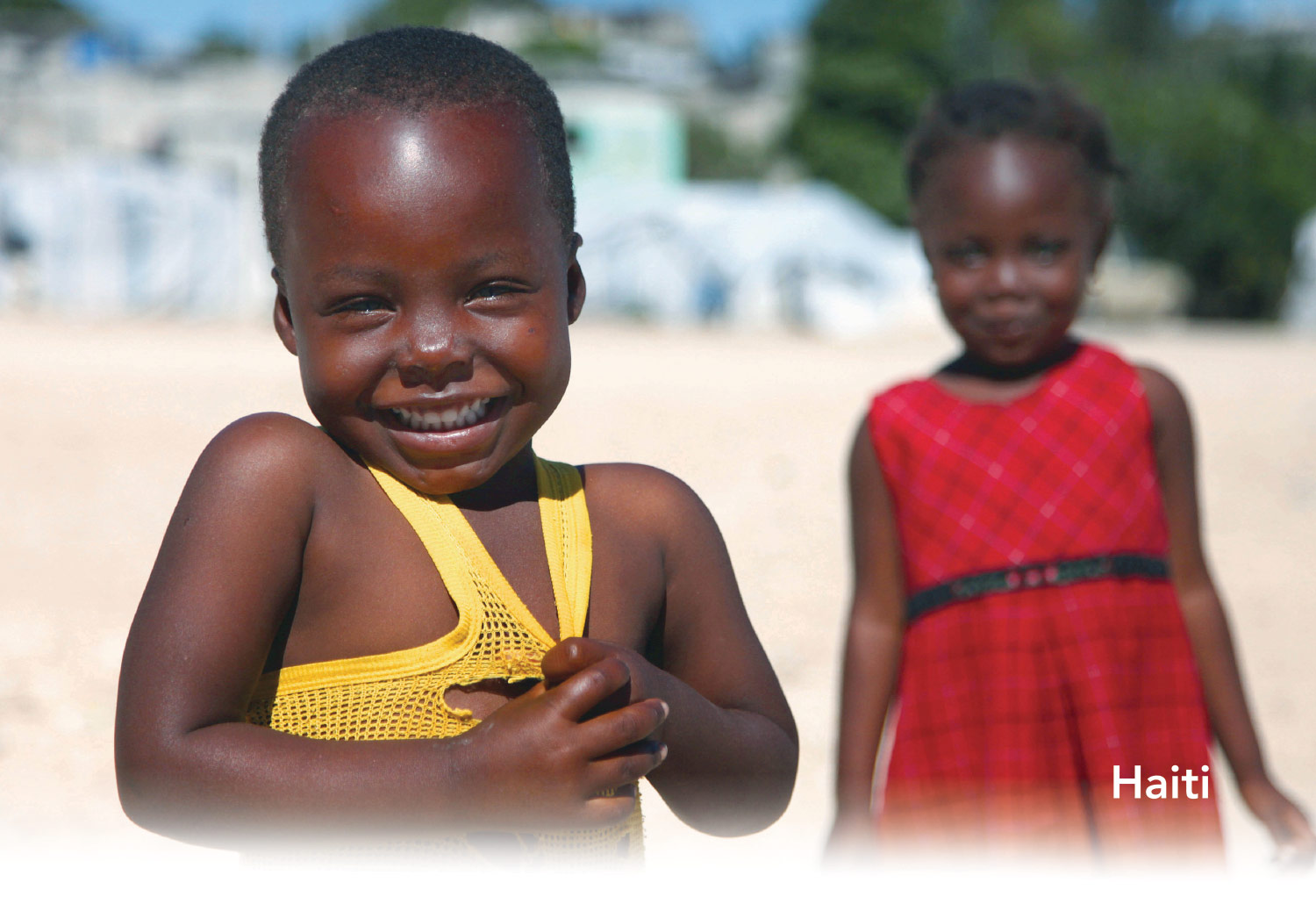
he ShelterBox tent is a big piece of equipment. It’s easily three long strides across. Maybe that’s why I didn’t notice her at first. In fact, that’s probably the first thing I remember about Jingky and that long-ago trip to the Philippines – that she wasn’t there, and then suddenly, she was.
ShelterBox deployment teams are tasked with helping to shelter families who have lost everything in an earthquake, flood or conflict. We’re nearly always accompanied by someone from the local government or a local non-profit who can help interpret and help us to find the people who most need our assistance. Jingky must have been talking to someone while Chris and I were busy getting the skin of our tent laid out and ready to pop.
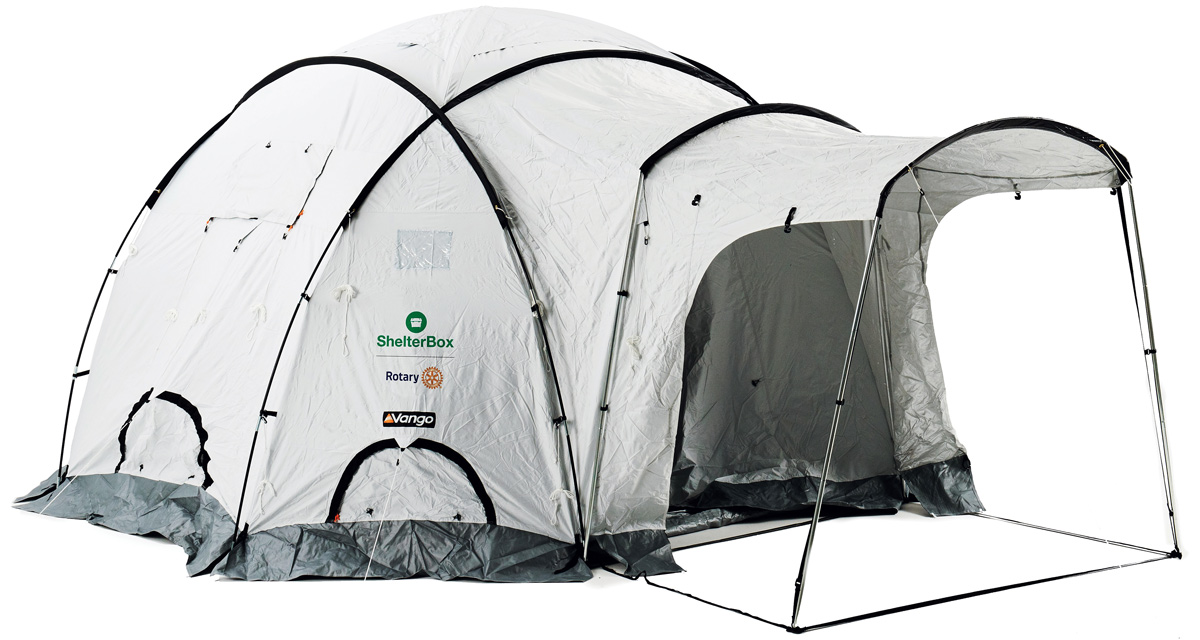
Days later, we learned that Jingky’s family home had been washed away in Typhoon Haiyan. That the entire time she was helping us, her husband was on another island looking for work, and her kids were staying with someone else while Jingky looked for a place big enough to house the family. That their garden, from which they drew sustenance every day, had been totally devastated. That they were now picking meat from old crab shells for food. When we asked Jingky why she hadn’t said anything on day one, she gazed at us for a long moment, as if we should be able to figure it out for ourselves. And then: “Others needed help more than I did.”
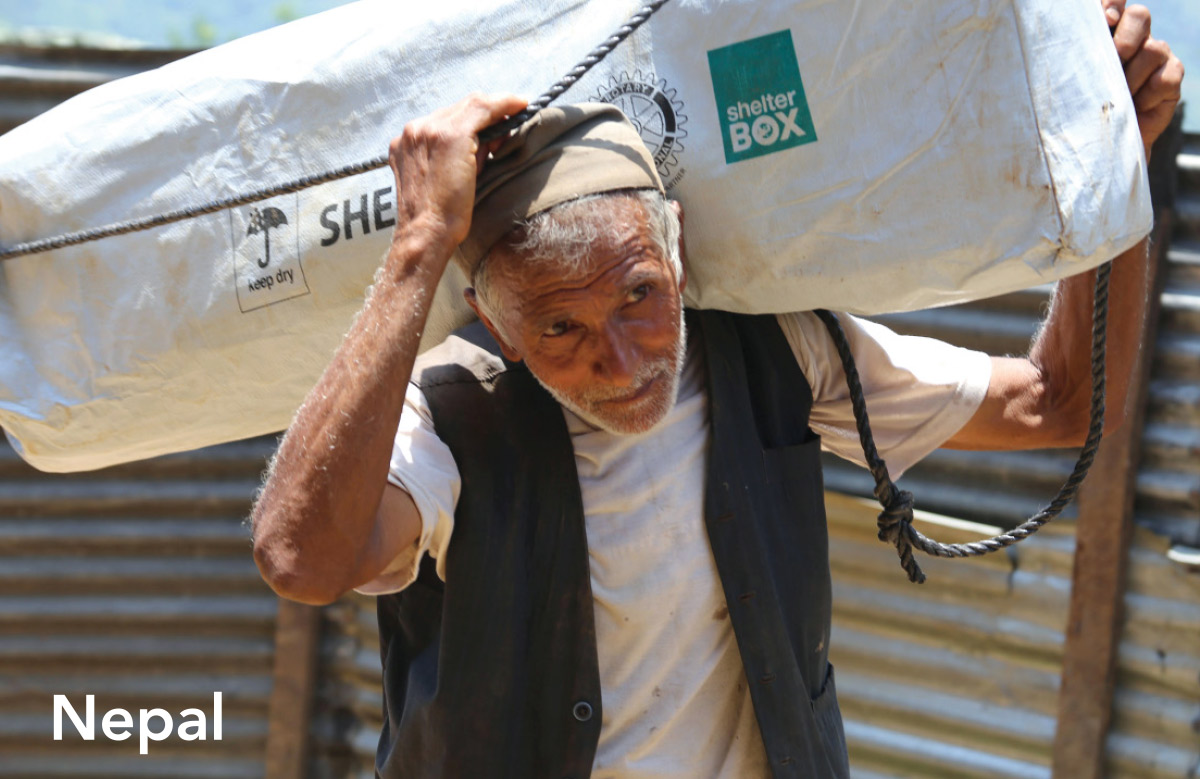
Because, you see, after we had finished with our deployment, Jingky went on to work with another not-for-profit. As did Ricardo, one of the drivers we hired during Haiti’s 2010 earthquake. As did Avendale, in the Commonwealth of Dominica, West Indies, and Beatrice, in Malawi, Africa.
In part, knowing these people, and paying attention to how they’ve stepped into bigger versions of themselves after the worst disasters they’ve ever seen, has made me a better person. It’s made me take a closer look at who I am and why I do the things I do. When the stakes are as high as helping to ensure a family’s survival, you can’t help but want to get better.
Whether I’m in another country on deployment for ShelterBox or at home, people seem surprised when I tell them we’re volunteers. Maybe you’re surprised, too, to read that this thing that has changed so much of my life is a volunteer gig. I haven’t quite gotten to the root of this disbelief yet—it could be that people are surprised that working Americans can take three or six weeks out of the year to be abroad. In one case, I was asked if I was married yet. At the time, I wasn’t, and the person I was speaking to nodded and said, “I guessed not. If you were married, he wouldn’t let you go out and do these things.”
When I first started looking into volunteering for ShelterBox, my then-fiancé and I sat down and had a talk about the way our lives would change if I passed the rigorous testing required of all our response team members. “This will come first from now on,” he said. Since then, I’ve missed anniversaries, birthdays, holidays. In one case of particularly bad timing, I was called to the airport while I was dressed and packed to fly home for Thanksgiving. We were three hours from getting on a flight. I got on another flight the next day instead. As for work, well, every client I sign is briefed on my deployment schedule for the year before we ink anything. My annual calendar revolves around deployments.
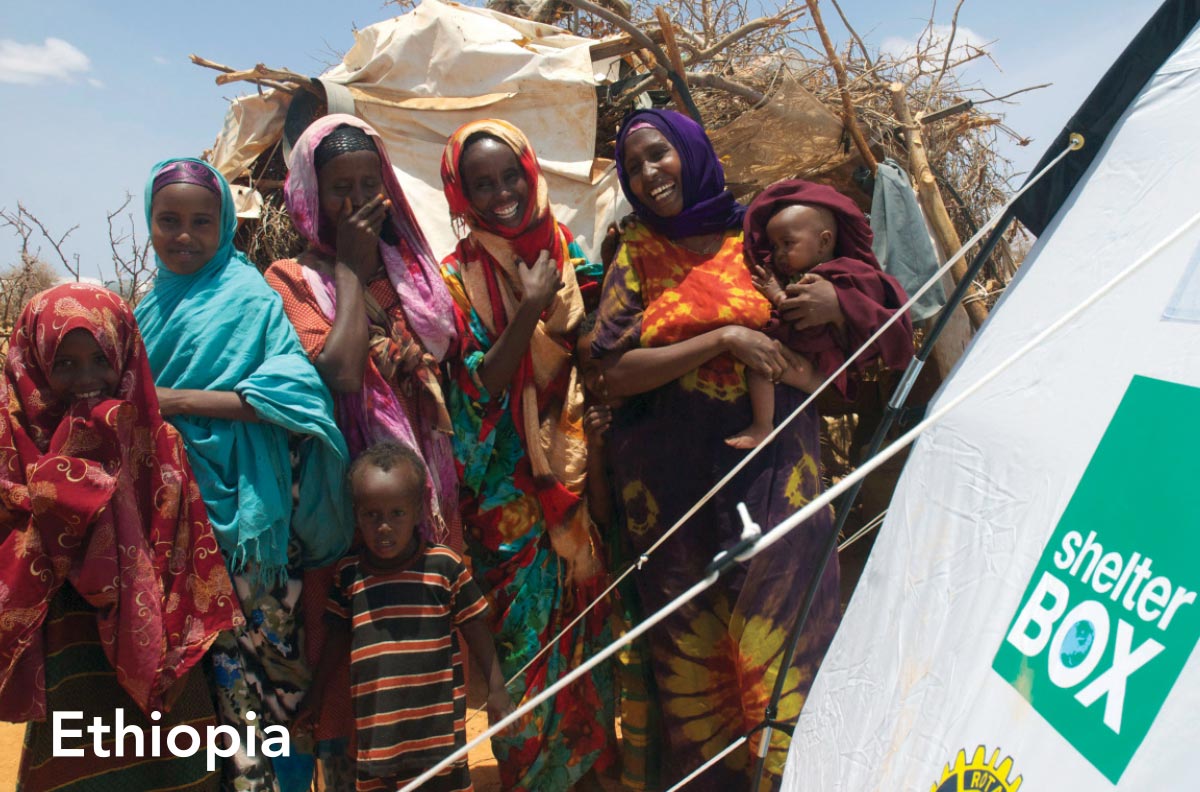
- What went well today?
- What didn’t go so well?
- What would we have done differently?
- What will we do tomorrow?
This allows us to process the day in a way that looks forward, that allows for mistakes made to be addressed, corrected and improved.
I’m not saying I do this with myself every night, but these questions live in the back of my brain now. They allow me to be open to making myself better.
I don’t deploy with ShelterBox because I’m on some kind of self-improvement kick. I signed on because it’s where I feel at my best. But maybe part of being at your best is recognizing that there is always something else to learn, and someone else who will become your teacher.
